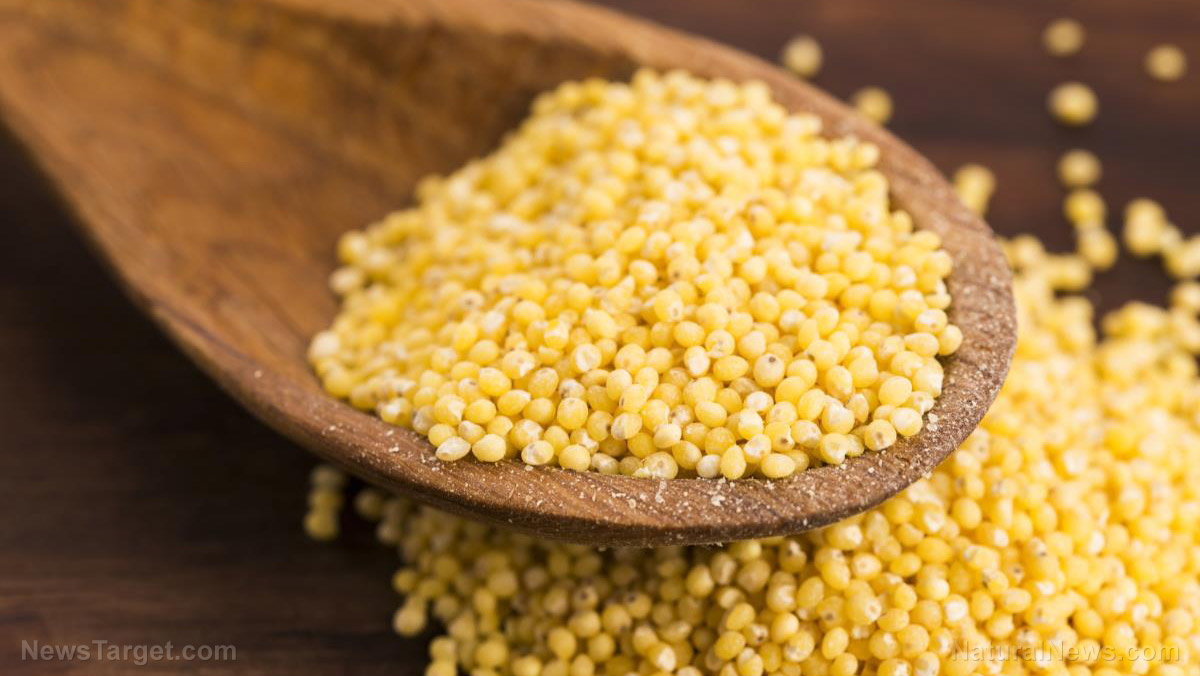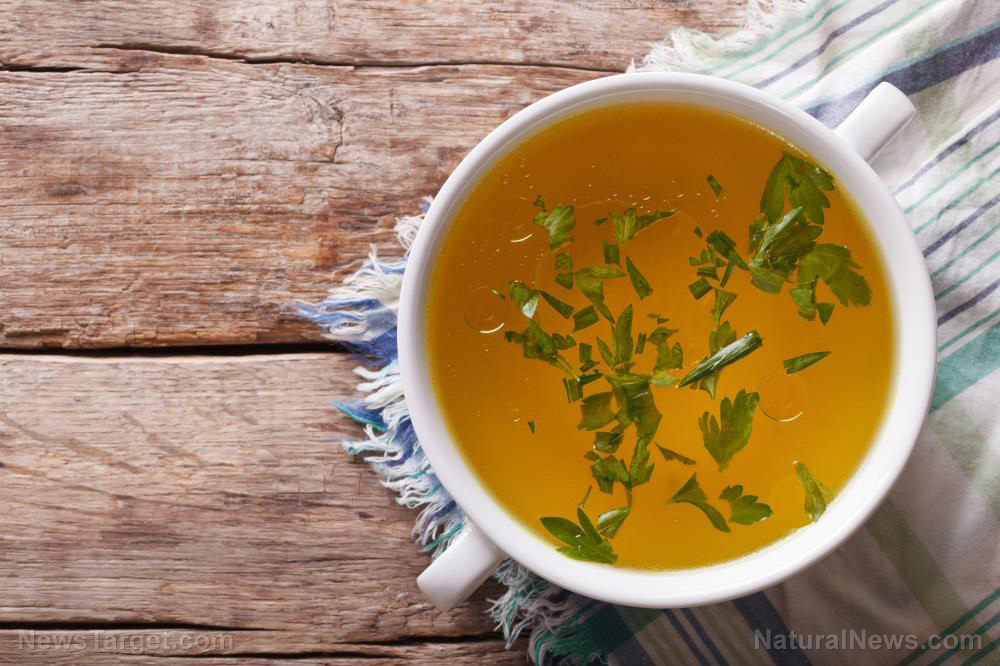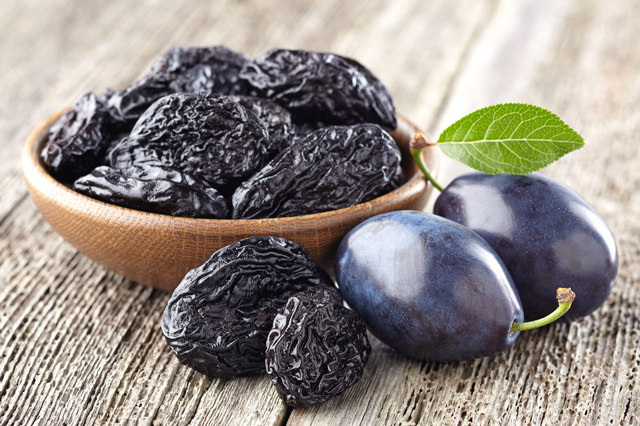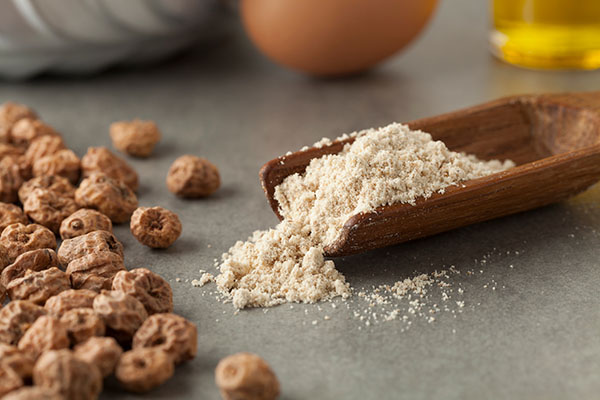4 Health benefits of pomegranate, an ancient superfood
12/01/2022 / By Olivia Cook
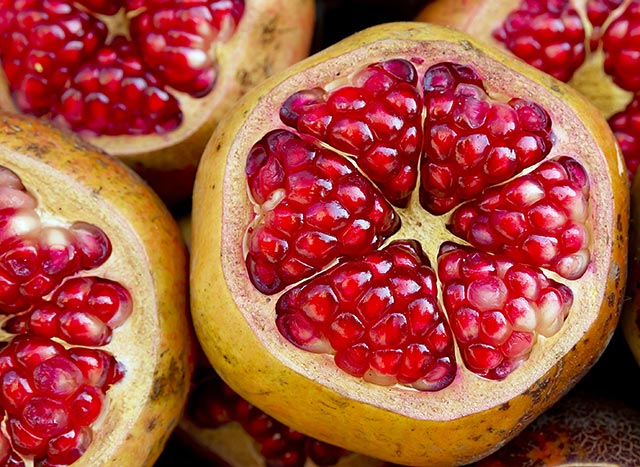
The pomegranate (Punica granatum) has become part of the lore of many cultures and religions across the globe.
In Buddhism, it is considered one of Buddha’s blessed fruits. Hindus, meanwhile, consider the pomegranate as a symbol of prosperity. Greek mythology ties the pomegranate to Persephone, whose consumption of the fruit’s seeds permanently tied her to the underworld.
The pomegranate was also highly valued for its many uses outside of sustenance. Its juice was used as a tonic to kill parasites. Its crushed blossoms yielded a red dye, while its peel was used to dye leather. The crunchy, edible pomegranate seeds – called arils – are high in antioxidants and packed in fiber, unique fatty acids, vitamins and minerals. (Related: Discover the superfood power of pomegranate.)
Aside from the pomegranate’s legendary status in antiquity, here are more reasons to try out this superfood:
Pomegranate juice is the healthiest of all fruit juices
A 2000 study published in the Journal of Agriculture and Chemistry ranked pomegranate juice as the healthiest of all fruit juices in terms of antioxidant potency, antioxidant functionality and total polyphenol content. It easily surpassed red wine, Concord grape juice, blueberry juice, black cherry juice, acai juice, cranberry juice, orange juice, tea and apple juice in those three aspects. Moreover, antioxidant activity was higher in commercial juices extracted from whole pomegranates compared to experimental juices obtained from the seeds alone.
Pomegranate prevents and treats cancer
A study published January 2017 in Molecules found that pomegranate contains naturally occurring compounds that possess properties scientifically found to prevent and treat several types of cancer. When highly aggressive prostate cancer cells were treated with pomegranate juice, their growth halted and apoptosis (cell death) commenced. The study authors noted that pomegranate juice could lower the risk of lung cancer due to its effect on malignant cells.
Pomegranate supports cardiovascular health
According to a 2013 study published in the Rambam Maimonides Medical Journal, pomegranate is rich in polyphenols that help prevent the formation of plaque in blood vessels. It stated that pomegranate juice consumption resulted in a 30 percent decrease in the extent of plaque build-up in the arteries. Moreover, pomegranate seed oil helped decrease triglycerides in the blood and balance the levels of high-density lipoprotein (known as good cholesterol).
Pomegranate supports urinary health
One study from August 2014 published in Urolithiasis found that pomegranate extract may help reduce the formation of kidney stones and uric acid crystals in the urinary tract. The researchers behind the study gave adults between 18 and 70 years old who were experiencing recurrent kidney stone 1,000 milligrams of pomegranate extract for 90 days. They found that the pomegranate extract inhibited the kidney stone formation mechanism in the participants’ bodies, which was credited to the fruit’s antioxidant activity.
Whether it is associated with a boon (in the case of Buddhism and Hinduism) or a bane (in the case of Greek mythology), it cannot be denied that pomegranate possesses key nutrients and antioxidants that ensure utmost health and protect from disease.
Head over to Superfoods.news for more stories about pomegranate and other super fruits.
Watch this video that explains how pomegranate juice helps maintain cardiovascular health by cleaning the arteries, lowering the risk of a heart attack.
This video is from the Natural News channel on Brighteon.com.
More related stories:
Compounds in pomegranate juice found to trigger cancer cell death.
Pomegranate peel extract found to be a safe and natural pesticide.
The potential therapeutic uses of pomegranate seed oil.
Pomegranate extracts treat diseases of inflammation.
Sources include:
Submit a correction >>
Tagged Under:
This article may contain statements that reflect the opinion of the author
RECENT NEWS & ARTICLES
COPYRIGHT © 2017 SUPERFOODS NEWS

